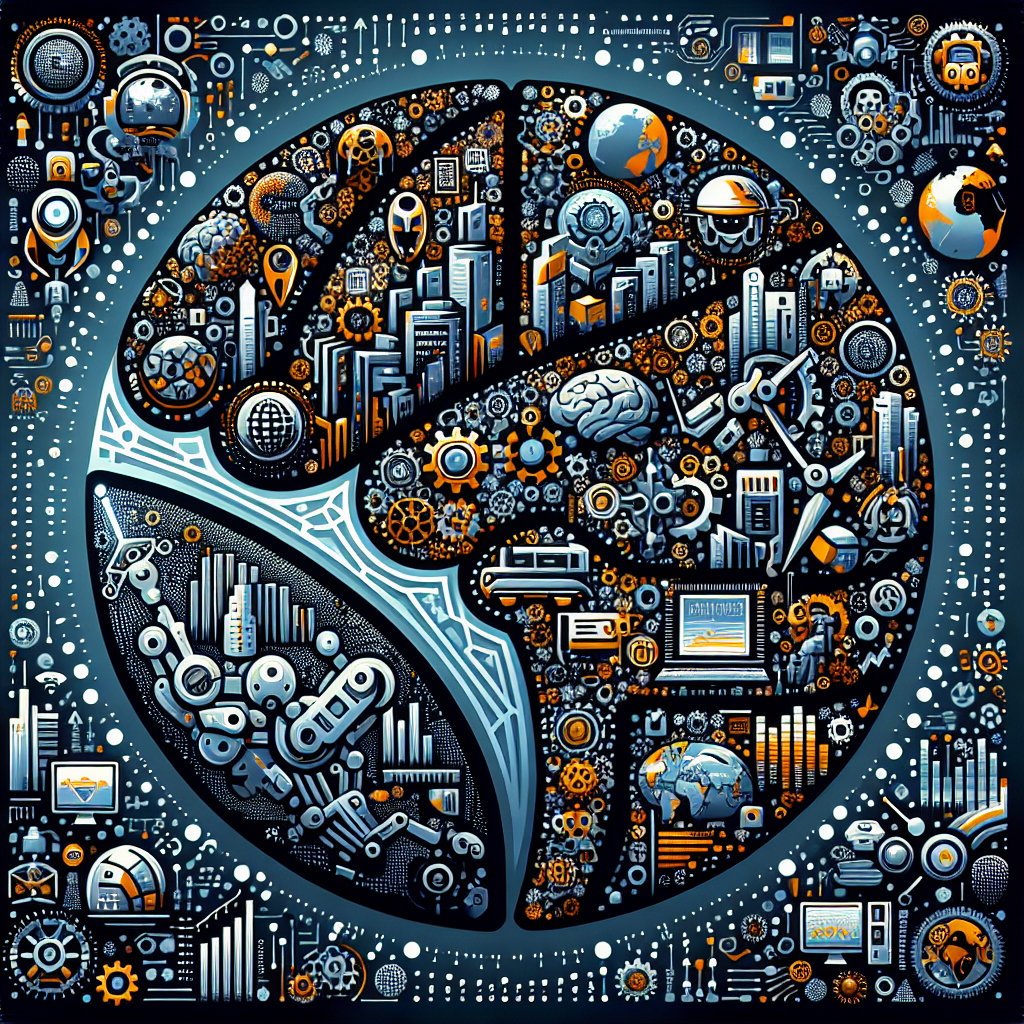Artificial General Intelligence (AGI) is the next frontier in artificial intelligence (AI) research. Unlike current AI systems, which are designed for specific tasks and lack the ability to generalize across different domains, AGI aims to create machines that can perform any intellectual task that a human can, with the same level of proficiency. This has the potential to revolutionize industries and reshape the world in ways we can only begin to imagine.
AGI has the potential to transform industries in numerous ways. One of the most obvious impacts will be on the labor market. As machines become more capable of performing a wide range of tasks, many jobs currently performed by humans could be automated. This could lead to significant changes in the nature of work, with some jobs becoming obsolete while others are created to support the development and maintenance of AGI systems.
In addition to changing the nature of work, AGI could also revolutionize the way we approach scientific research and discovery. With the ability to process and analyze vast amounts of data quickly and efficiently, AGI systems could accelerate the pace of scientific discovery in fields as diverse as medicine, materials science, and climate research. This could lead to breakthroughs in areas such as drug development, renewable energy, and disease prevention that were previously thought to be beyond our reach.
AGI also has the potential to revolutionize the way we interact with technology. Current AI systems are limited in their ability to understand and respond to human language and behavior. AGI systems, on the other hand, could be designed to understand and interpret human language and behavior in a way that is indistinguishable from interacting with another human. This could lead to a new era of human-machine collaboration, where machines become not just tools, but partners in our daily lives.
The impact of AGI on society will be profound. In addition to the changes in the labor market and scientific research, AGI could also have far-reaching implications for issues such as privacy, security, and ethics. As machines become more intelligent and autonomous, questions about how to ensure their behavior aligns with human values and preferences will become increasingly important. This will require careful consideration and oversight to ensure that AGI systems are developed and used in a way that benefits society as a whole.
Despite the potential benefits of AGI, there are also significant challenges and risks associated with its development. One of the biggest challenges is ensuring that AGI systems are aligned with human values and goals. As machines become more intelligent and autonomous, there is a risk that they could develop goals and motivations that are in conflict with those of humans. This could lead to unintended consequences and potentially harmful outcomes.
Another challenge is ensuring the safety and security of AGI systems. As machines become more intelligent and capable, there is a risk that they could be used for malicious purposes, such as hacking into systems, spreading misinformation, or even causing physical harm. Ensuring the security of AGI systems will require robust safeguards and protocols to prevent misuse and abuse.
Despite these challenges, the potential benefits of AGI are too great to ignore. By revolutionizing industries and reshaping the world, AGI has the potential to unlock new opportunities and possibilities that were previously unimaginable. With careful planning and oversight, AGI has the potential to be a force for good in the world, driving progress and innovation in ways we can only begin to imagine.
FAQs
Q: What is the difference between AGI and current AI systems?
A: Current AI systems are designed for specific tasks and lack the ability to generalize across different domains. AGI, on the other hand, aims to create machines that can perform any intellectual task that a human can, with the same level of proficiency.
Q: What are the potential benefits of AGI?
A: AGI has the potential to revolutionize industries and reshape the world in numerous ways, including automating tasks, accelerating scientific research, and improving human-machine interaction.
Q: What are the risks associated with AGI?
A: Some of the risks associated with AGI include ensuring alignment with human values and goals, as well as ensuring the safety and security of AGI systems to prevent misuse and abuse.
Q: How can we ensure the responsible development and use of AGI?
A: Ensuring the responsible development and use of AGI will require careful planning, oversight, and collaboration between researchers, policymakers, and industry stakeholders to address the ethical, safety, and security challenges associated with AGI.
Q: When can we expect AGI to become a reality?
A: While it is difficult to predict exactly when AGI will become a reality, researchers are making rapid progress in the field of AI, and some experts believe that AGI could be achieved within the next few decades.

